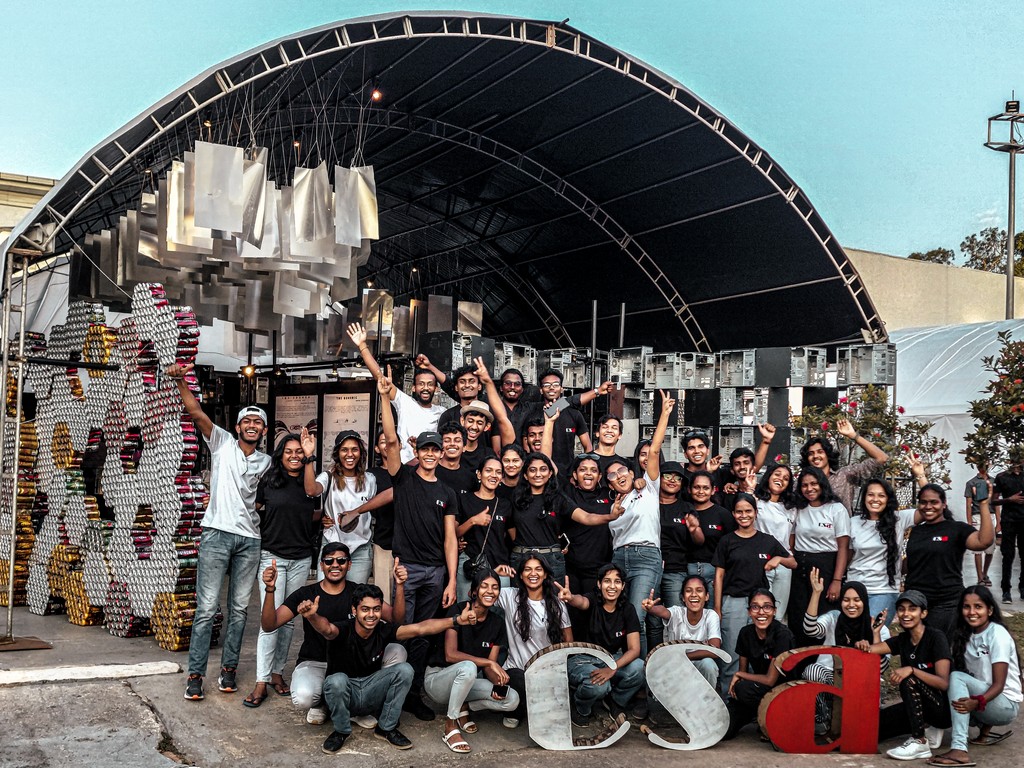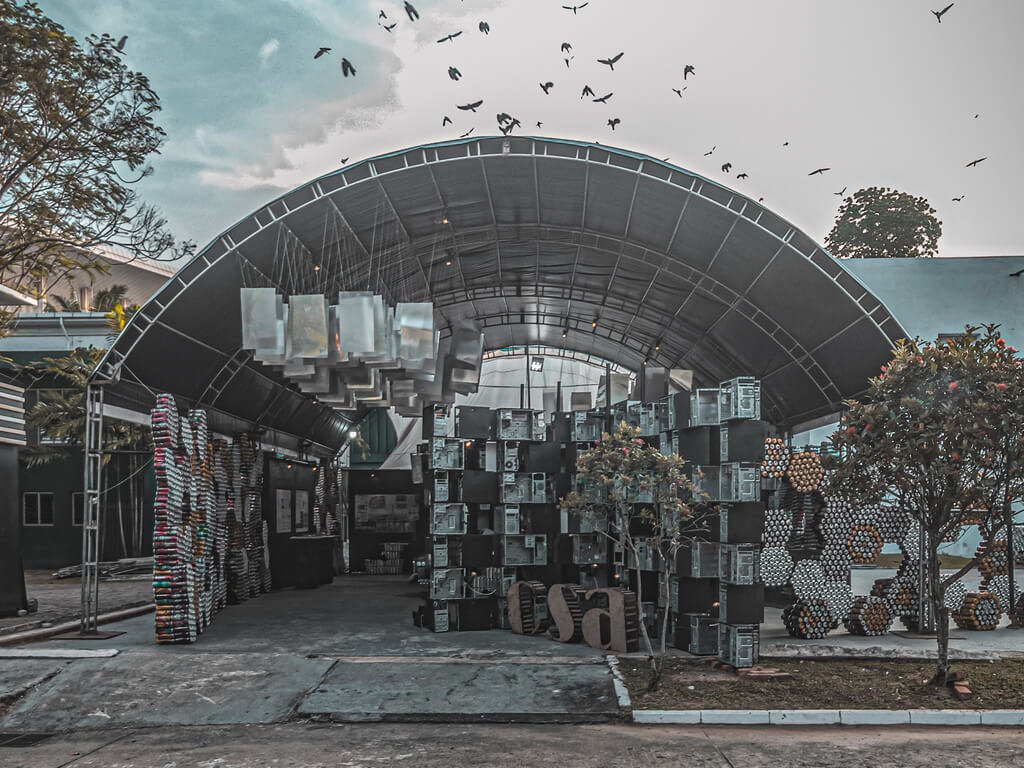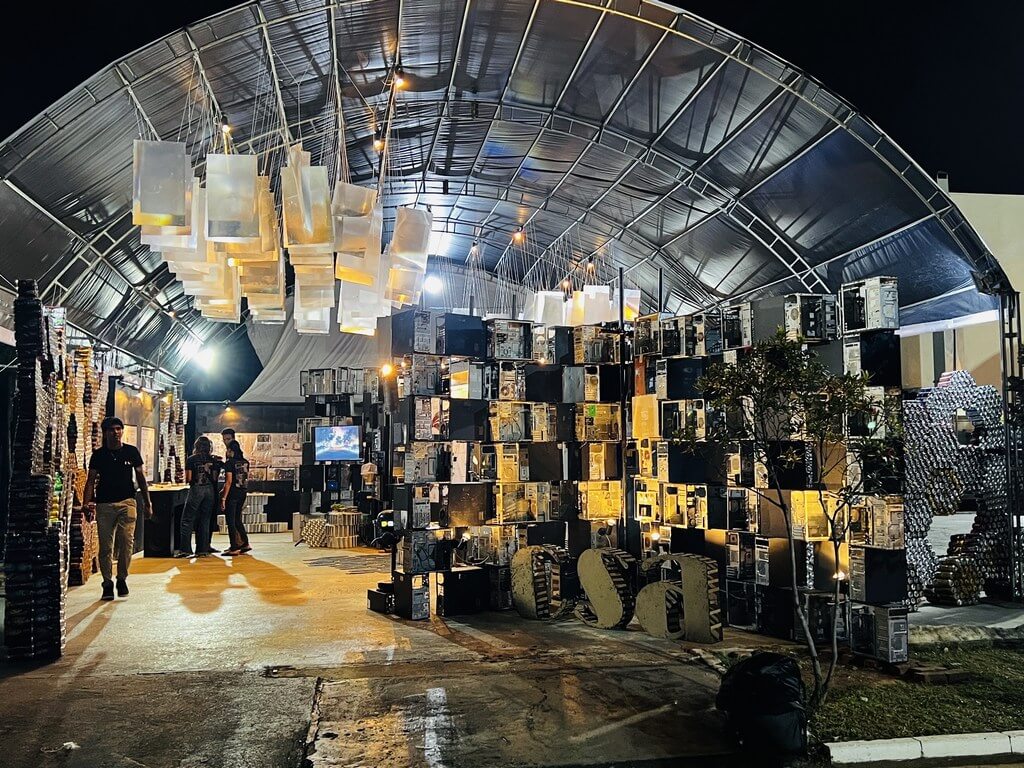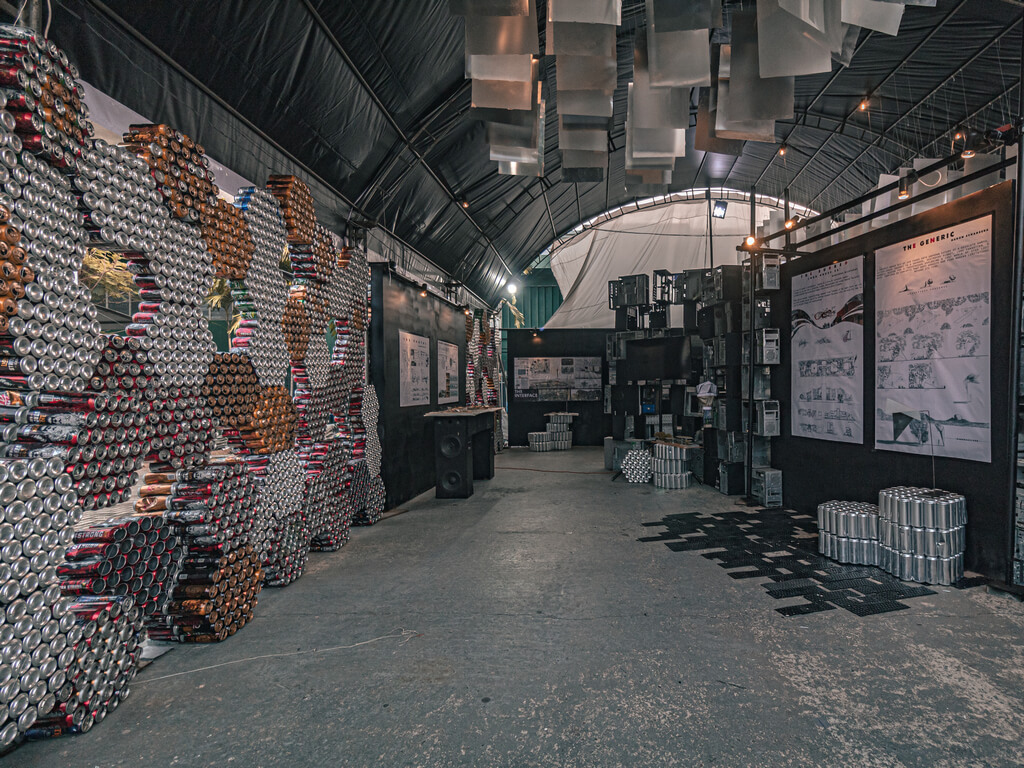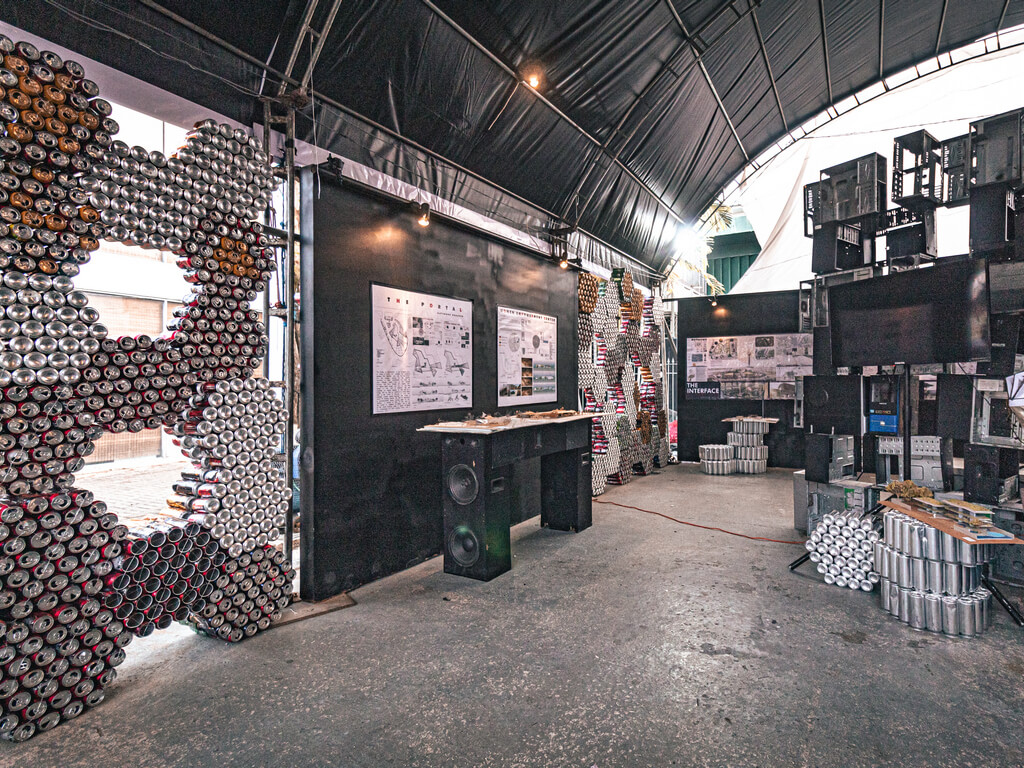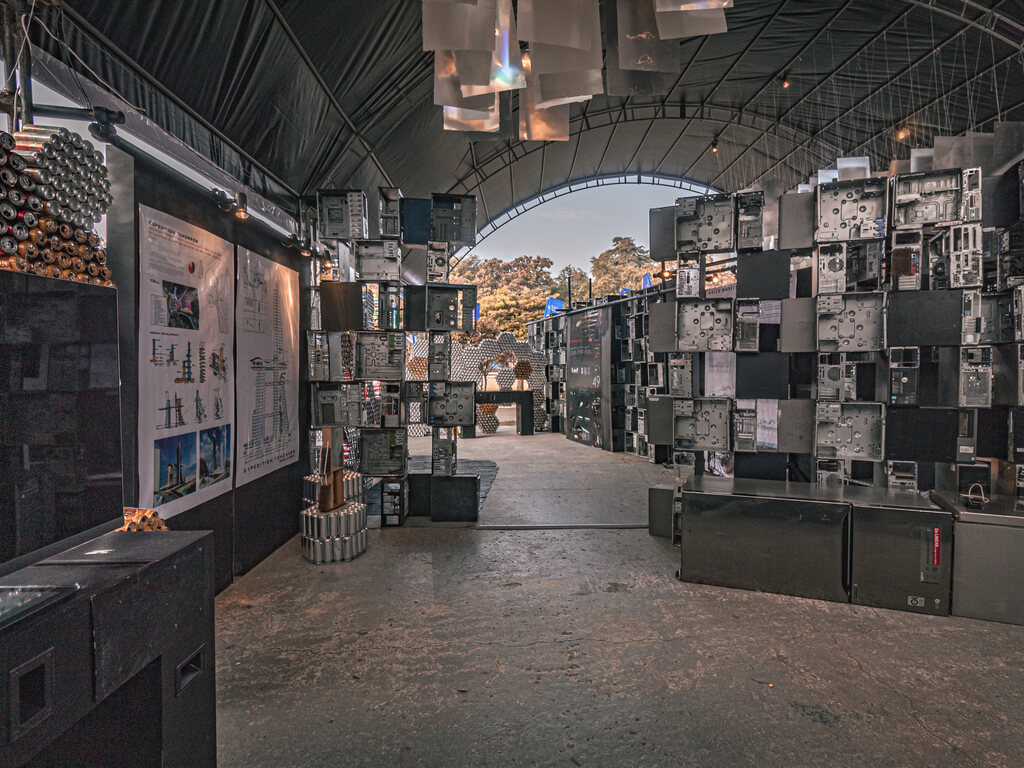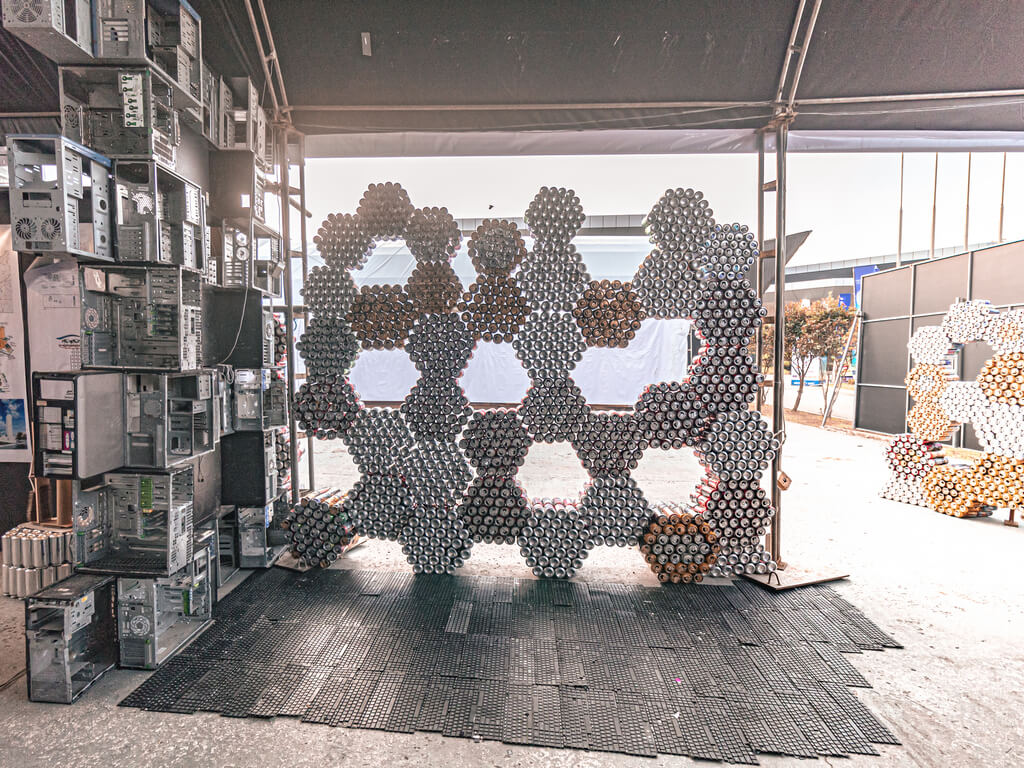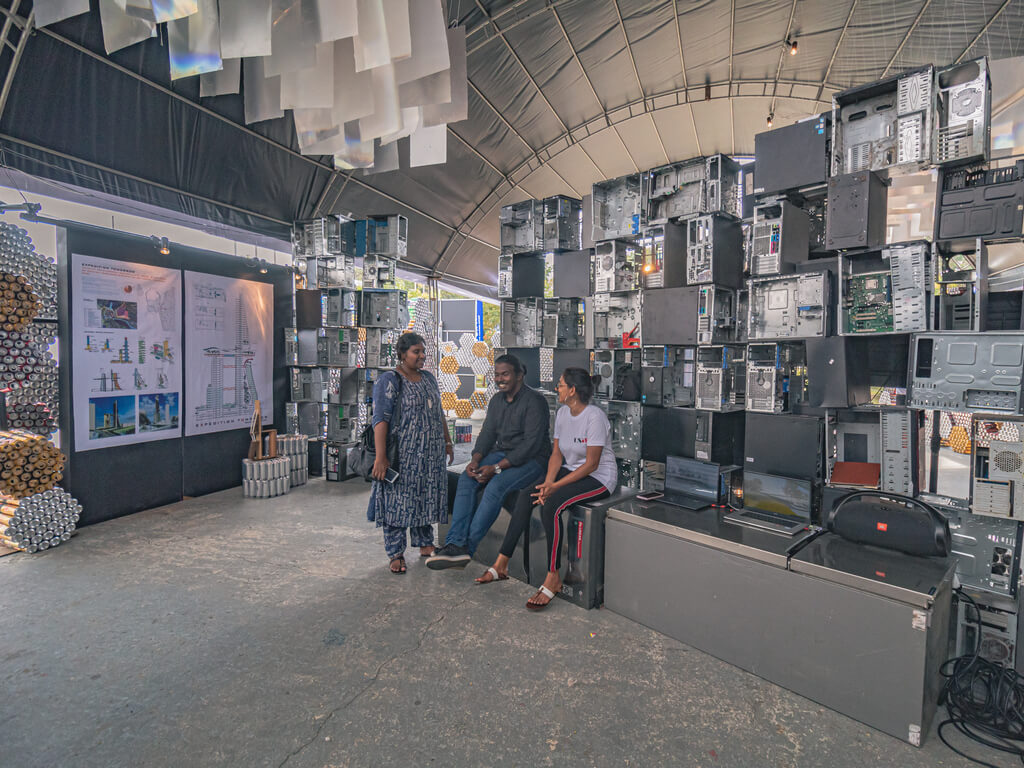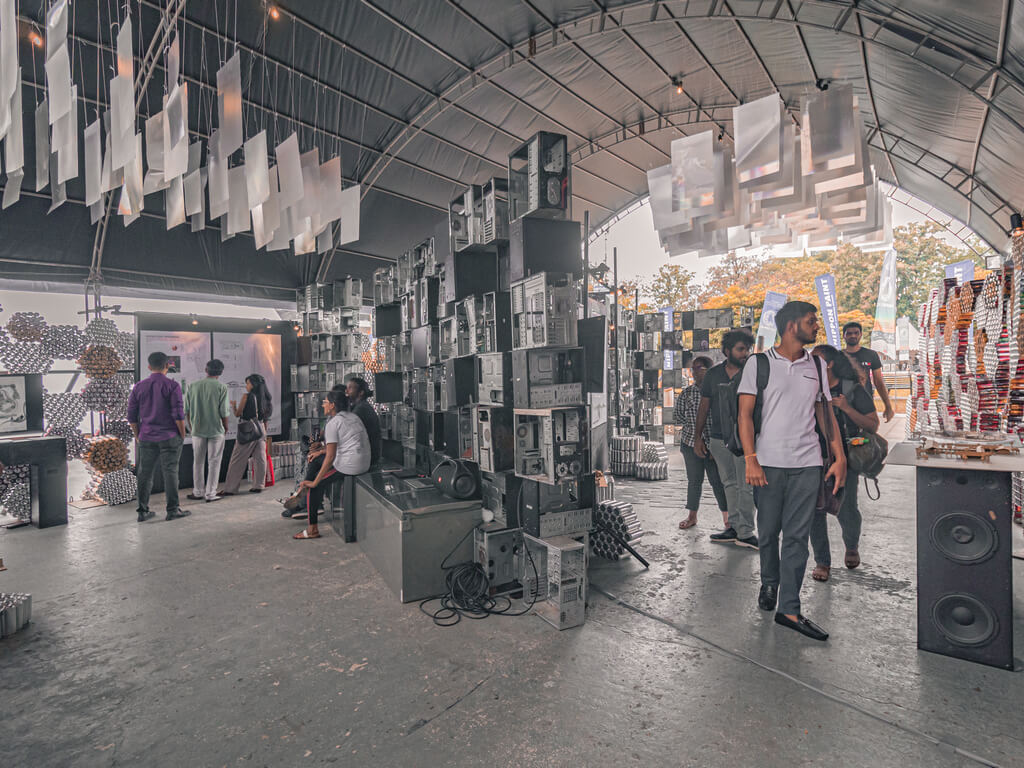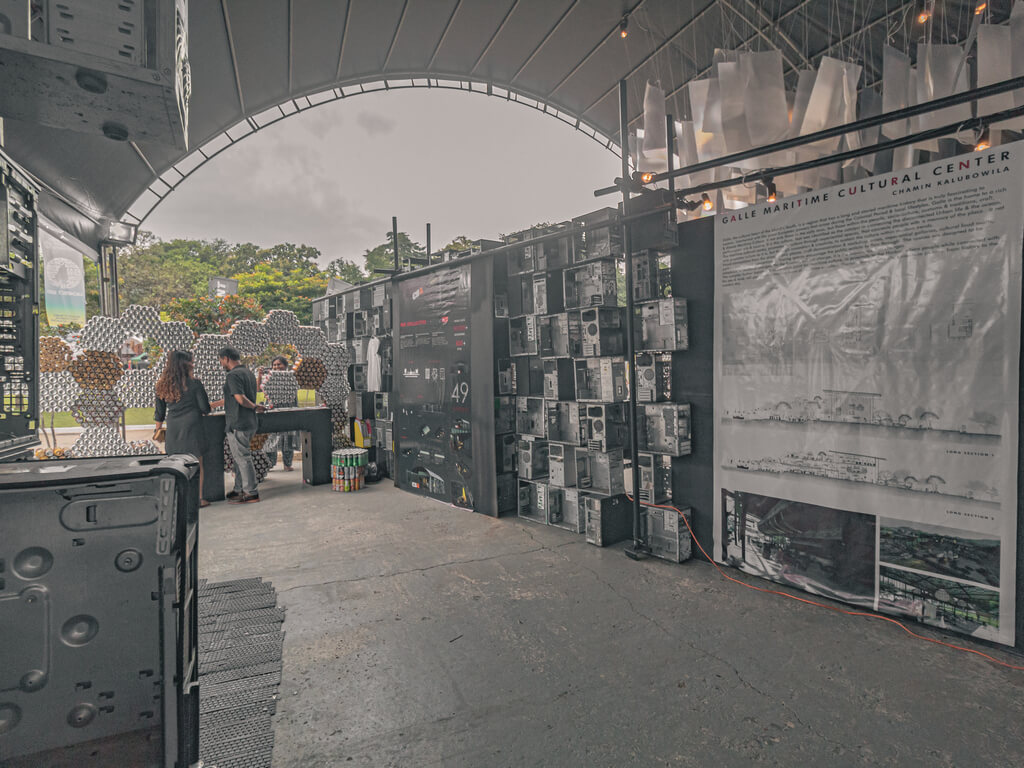For the SLIA Architecture & Trade Exhibition 2023, students of CSA designed a modular construction made from recycled metal and electronic waste. The design concept is centered around the idea of upcycling the underutilized materials in the industry. This originates from the architect's role in innovating unconventional methods as an escape route to aid the current economic state of the country resulting in resource shortages and supply bottlenecks.
The students selected two primary materials, which are electronic waste and aluminum out of the eight given options because of their high durability, structural strength, recyclable capacity, and the complimentary aesthetics of both materials combined.
The can is chosen as it is the largest single-use of aluminum globally. On the other hand, E-waste is a major waste concern in the country where only 12% of the 25000 metric tons disposed of is recycled. From a critical analysis, it was evident that an upcycling method has to be introduced as a possible alternative to existing recycling methods.
“Modular construction” is used as an efficient construction process with less skilled labor which opens up an opportunity for hands-on experience. The hexagon module done with cans is inspired by the iconic beehive structure interconnected in a spider web pattern which results in high compressive strength and harmonious material combination. The application of biomimicry is observed both aesthetically and structurally.
From the wide range of e-waste options available in the country CPU casings, keyboards, and LCD panels were chosen. The components construct meaningful spaces focusing on spatial quality and sensory stimulation; with the CPU’s creating spatial progression, a keyboard ‘’flooring’’ that promotes sensory stimulation, and suspended LCD panels that create a play of light and shadow. By reusing obsolete computer parts it shed light on the 'invisible' digital infrastructures that connect people to a futuristic reality.
Materials needed for the construction were collected tirelessly from eateries, licensed waste collectors, garbage sites, and from students themselves. The process was centered only in Colombo and in a span of two weeks resulted in collecting 30,000 cans and 500+ CPUs which raises a concern about the huge amounts of daily disposal that goes unnoticed.
The exhibition serves as an opportunity to raise awareness about meaningful material and construction practices where leading individuals and organizations can take part in design solutions to initiate upcycling methods for a brighter and better future.

